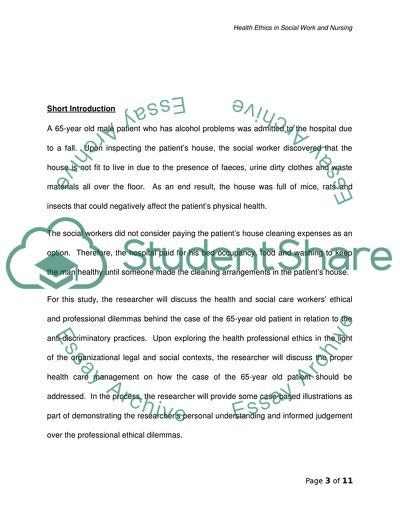Cite this document
(Health Ethics in Social Work and Nursing Case Study Example | Topics and Well Written Essays - 1750 words, n.d.)
Health Ethics in Social Work and Nursing Case Study Example | Topics and Well Written Essays - 1750 words. https://studentshare.org/health-sciences-medicine/1545958-ethic-in-social-work-and-nursingmanagerialism
Health Ethics in Social Work and Nursing Case Study Example | Topics and Well Written Essays - 1750 words. https://studentshare.org/health-sciences-medicine/1545958-ethic-in-social-work-and-nursingmanagerialism
(Health Ethics in Social Work and Nursing Case Study Example | Topics and Well Written Essays - 1750 Words)
Health Ethics in Social Work and Nursing Case Study Example | Topics and Well Written Essays - 1750 Words. https://studentshare.org/health-sciences-medicine/1545958-ethic-in-social-work-and-nursingmanagerialism.
Health Ethics in Social Work and Nursing Case Study Example | Topics and Well Written Essays - 1750 Words. https://studentshare.org/health-sciences-medicine/1545958-ethic-in-social-work-and-nursingmanagerialism.
“Health Ethics in Social Work and Nursing Case Study Example | Topics and Well Written Essays - 1750 Words”. https://studentshare.org/health-sciences-medicine/1545958-ethic-in-social-work-and-nursingmanagerialism.


